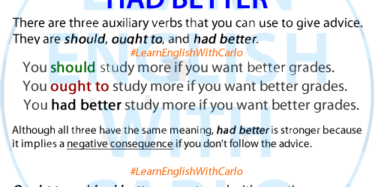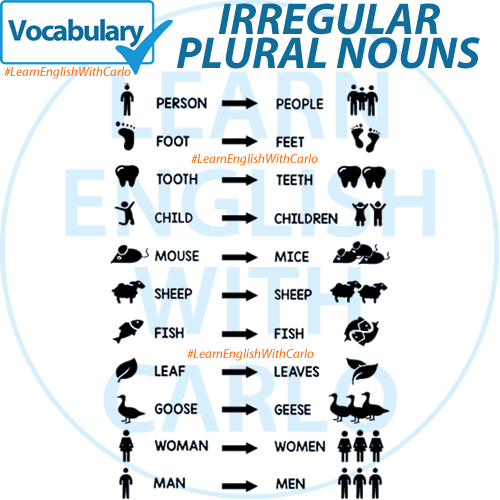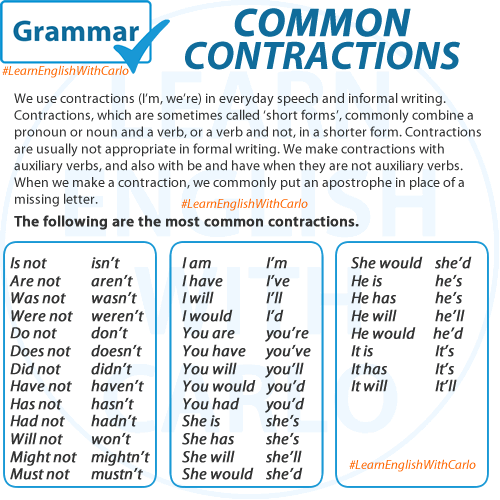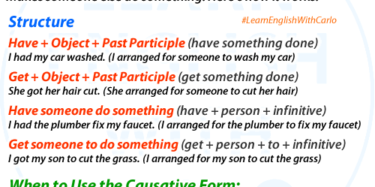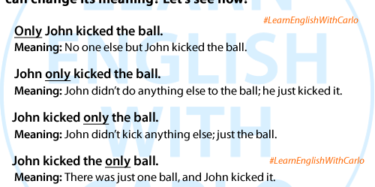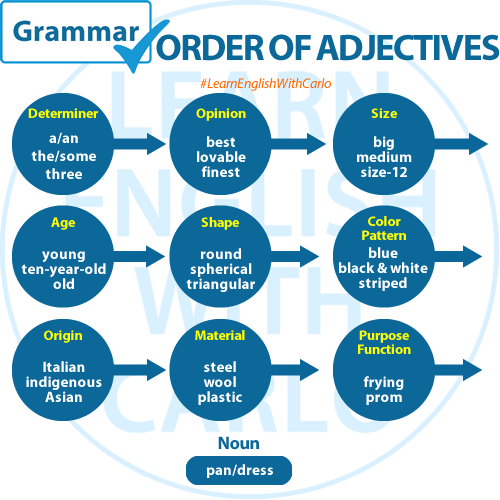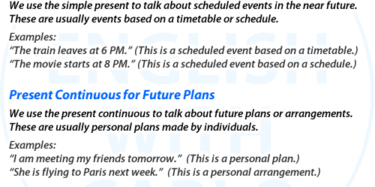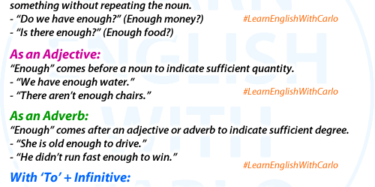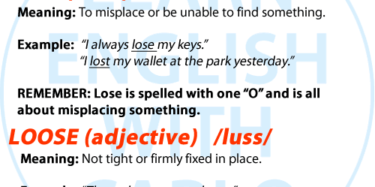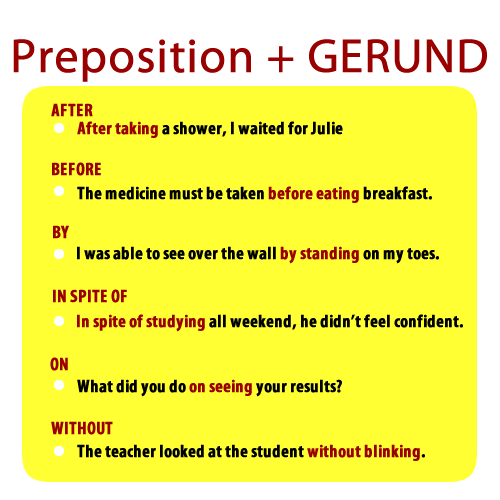Welcome to Learn English With Carlo
Permanent link to this article: https://englishyourway.com.br/
Giving Advice: SHOULD, OUGHT TO, and HAD BETTER
When giving advice in English, we often use the modal verbs “should,” “ought to,” and “had better.” Each of these has its nuances and specific contexts where they are more appropriate. Let’s explore how to use them, their differences, and how they work in questions and negative sentences. Using SHOULD “Should” is the most common …
VOCABULARY – Irregular Plural Nouns
VOCABULARY – Irregular Plural Nouns Most nouns in English are made plural by adding an ‘s’ to the singular form. But there are some exceptions. Here are a few of the more common ones. The plural of person is people. The plural of foot is feet. The plural of tooth is teeth. The plural of …
GRAMMAR – COMMON CONTRACTIONS
GRAMMAR – COMMON CONTRACTIONS We use contractions (I’m, we’re) in everyday speech and informal writing. Contractions, which are sometimes called ‘short forms’, commonly combine a pronoun or noun and a verb, or a verb and not, in a shorter form. Contractions are usually not appropriate in formal writing. We make contractions with auxiliary verbs, and …
The Causative Form
The causative form is a grammatical structure used when one person causes another person to do something. It’s a common form in English and is often used to indicate that someone has arranged for an action to be done by someone else. Structure of the Causative Form There are two main ways to form the …
Understanding the Correct Placement of “Only”
Using “only” correctly can make a big difference in the meaning of a sentence. It’s a small word with a powerful impact! Let’s dive into how to place “only” correctly to convey the exact meaning you want. Understanding the Role of “Only”: “Only” is a versatile word that can modify different parts of a sentence. …
GRAMMAR – Order of Adjectives
In English, when multiple adjectives are used to describe a noun, they typically follow a specific order. This order helps maintain clarity and natural-sounding language. The general order of adjectives is as follows: Here’s an example sentence using multiple adjectives in their correct order: “The beautiful small old wooden Italian music box.” In this sentence:“The” …
Using Present Tenses to Talk About the Future
Did you know we can use the simple present and the present continuous tenses to talk about the future? Let’s dive into how we do this! Simple Present for Future Events When to use:We use the simple present to talk about scheduled events in the near future. These are usually events based on a timetable …
Grammar – ENOUGH
What Does “Enough” Mean? “Enough” means having as much or as many as needed. It’s not too little, not too much, but just right! How to Use “Enough”: Key Points to Remember: Practice Time! 📝 Try using “enough” in different ways: Keep practicing, and you’ll master “enough” in no time! 🌟
Confusing Words: Lose vs. Loose
Hey everyone! Today, let’s clear up the confusion between two commonly mixed-up words: lose and loose. LOSE (verb) /lu:z/ LOOSE (adjective) /lu:s/ Quick Tip:
GRAMMAR – Prepositions + GERUND
Understanding the correct use of prepositions with gerunds is crucial for mastering English grammar. This guide will help you navigate the common combinations, such as “interested in learning” and “good at cooking,” providing clear examples and practical exercises. Learning these patterns can enhance your writing and speaking skills, making your English more fluent and natural. …


